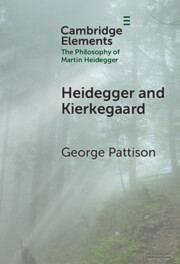Element contents
Heidegger and Kierkegaard
Published online by Cambridge University Press: 12 December 2024
Summary
- Type
- Element
- Information
- Online ISBN: 9781009417488Publisher: Cambridge University PressPrint publication: 16 January 2025
References
- 4
- Cited by

